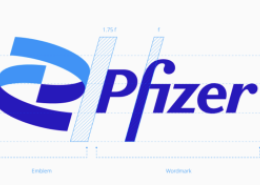Lipitor 80 mg Reduced the Risk of Heart Attack and Stroke in Patients with Heart Disease, Type 2 Diabetes and Chronic Kidney Disease
(BUSINESS WIRE)--Pfizer Inc announced today that, in patients with heart disease, type 2 diabetes and chronic kidney disease, Lipitor® (atorvastatin calcium) 80 mg significantly reduced the risk of major cardiovascular events, including heart attack and stroke, by 35 percent compared with Lipitor 10 mg. This finding is from a subanalysis designed and completed following the closure of the five-year Treating to New Targets (TNT) study in patients with existing coronary heart disease. The results were published in the August issue of Mayo Clinic Proceedings.
“As the rates of diabetes in the U.S. have risen, we have seen a dramatic increase in the number of cases of chronic kidney disease,” said Dr. James Shepherd, clinical academic consultant, department of pathological biochemistry, University of Glasgow Medical School and a member of the TNT steering committee. “This trend is alarming, since patients with diabetes and chronic kidney disease are much more likely to suffer a heart attack or stroke than patients with diabetes alone, increasing the urgency to treat. The study’s findings support existing guidelines that recommend aggressively lowering LDL cholesterol using statin therapy, such as Lipitor 80 mg, to reduce the likelihood of a heart attack or stroke in these high-risk patients."
In patients with heart disease and type 2 diabetes but without chronic kidney disease, Lipitor 80 mg reduced the risk of major cardiovascular events by 10 percent compared to Lipitor 10 mg, which did not reach significance.
Both doses of Lipitor (80 mg and 10 mg) were generally well tolerated.
About the TNT Study
The TNT study was an investigator-led trial coordinated by an independent steering committee and funded by Pfizer. The study enrolled 10,001 men and women with coronary heart disease aged 35 years to 75 years in 14 countries and followed them for an average of five years.
The primary endpoint of the TNT study was the occurrence of a first major cardiovascular event, defined as death from heart disease, non-fatal heart attacks, resuscitated cardiac arrest, or fatal or non-fatal strokes.
This post-hoc subanalysis studied the effect of Lipitor 80 mg on the incidence of major cardiovascular events compared with Lipitor 10 mg in patients with heart disease and type 2 diabetes, with chronic kidney disease (n=546) and without chronic kidney disease (n=885). Patients with chronic kidney disease were defined as having a baseline glomerular filtration rate below 60 mL/min/1.73 m2 using a standard measure of kidney function. Lipitor 80 mg is not a starting dose.
About Type 2 Diabetes
Type 2 diabetes is the most common form of diabetes, according to the American Diabetes Association, and is reaching epidemic proportions across the world. Europe alone counts more than 25 million people with type 2 diabetes. In the U.S., nearly 24 million people have type 2 diabetes, equating to almost eight percent of the population.
According to the Centers for Disease Control, heart disease and stroke account for about 65 percent of deaths in people with type 2 diabetes in the U.S. Adults with type 2 diabetes have heart disease death rates that are approximately two to four times higher than that of adults without diabetes.
About Type 2 Diabetes and Chronic Kidney Disease
Diabetes is the leading cause of chronic kidney disease in the U.S. and accounts for about 38 percent of Americans being treated for kidney failure. Patients with chronic kidney disease do not effectively filter toxins from the blood. When chronic kidney disease progresses to kidney failure, either dialysis or a kidney transplant is needed.
According to the National Kidney Foundation guidelines, the outlook for those with both diabetes and chronic kidney disease is far worse than for patients with either condition alone, as the combination is a powerful predictor of major cardiovascular events such as heart attack and stroke.
About Lipitor
Only Lipitor offers these three benefits important in a statin: FDA approval to reduce the risk of heart attacks, strokes and certain types of heart surgery in patients with cardiovascular risk or with heart disease; the ability to reduce “bad” cholesterol (LDL) by 39 percent to 60 percent; and a well-established safety profile across a broad range of patients.
It is the most prescribed branded cholesterol-lowering therapy in the world, with more than 151 million patient-years of experience. Lipitor is supported by a 16-year clinical trial program involving more than 400 ongoing and completed trials with more than 80,000 patients.
Important U.S. Prescribing Information
Lipitor is a prescription medication. It is used in patients with multiple risk factors for heart disease such as family history, high blood pressure, age, low HDL (“good” cholesterol) or smoking to reduce the risk of a heart attack, stroke, certain types of heart surgery and chest pain.
Lipitor is also used in patients with type 2 diabetes and at least one other risk factor for heart disease such as high blood pressure, smoking or complications of diabetes, including eye disease and protein in urine, to reduce the risk of heart attack and stroke.
Lipitor is used in patients with existing coronary heart disease to reduce the risk of heart attack, stroke, certain kinds of heart surgery, hospitalization for heart failure, and chest pain.
When diet and exercise alone are not enough, Lipitor is used along with a low-fat diet and exercise to lower cholesterol.
Lipitor is not for everyone. It is not for those with liver problems. And it is not for women who are nursing, pregnant or may become pregnant.
Patients taking Lipitor should tell their doctors if they feel any new muscle pain or weakness. This could be a sign of rare but serious muscle side effects. Patients should tell their doctors about all medications they take. This may help avoid serious drug interactions. Doctors should do blood tests to check liver function before and during treatment and may adjust the dose. The most common side effects are gas, constipation, stomach pain and heartburn. They tend to be mild and often go away.
For additional product information, visit www.Lipitor.com.
Media:
Vanessa Aristide, 212-733-3784
or
Rebecca Hamm, 212-733-8811








